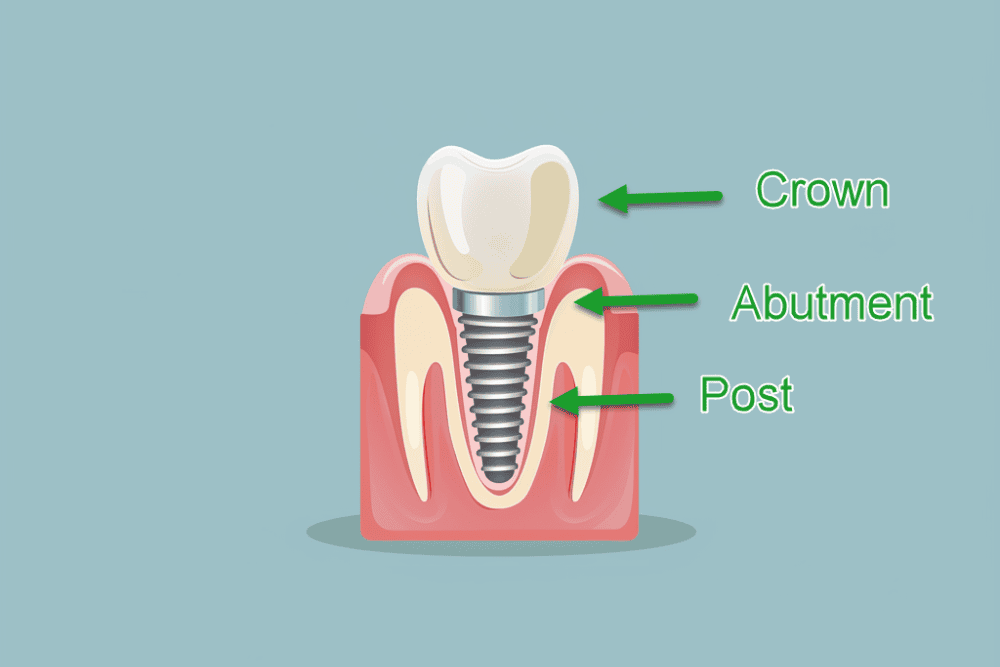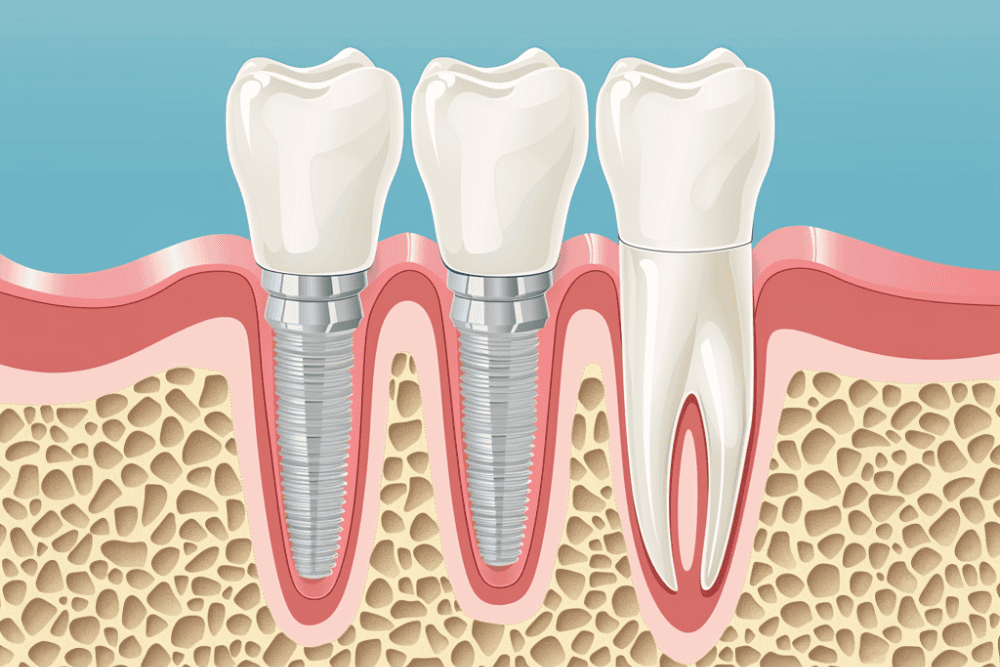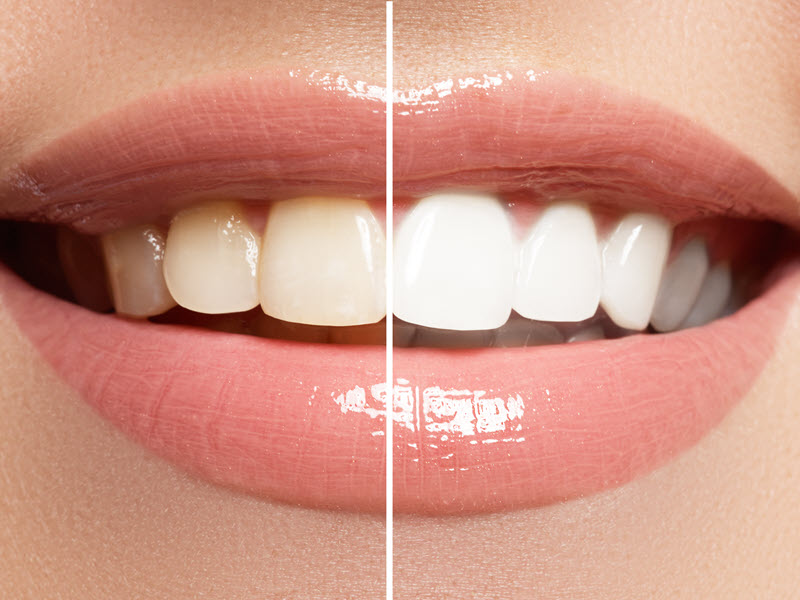Titanium, Zirconia and Other Materials are Used for Dental Implants
Dental implants have become a common solution for tooth replacement. They are made of materials like titanium and zirconia, known for their strength and biocompatibility. You might wonder why these materials are used and what makes them special.
Titanium is widely used because it integrates well with bone, creating a stable and durable foundation for artificial teeth.
Zirconia offers a more natural look since it closely matches the color of natural teeth. These materials ensure that dental implants not only function like real teeth but also look natural.
We’ll touch more on dental implant materials – including titanium and zirconia below. Understanding what dental implants are made of helps you appreciate their benefits and choose the best option for your needs. You’ll learn about how these materials contribute to the implant’s success and longevity.
Understanding Dental Implants
Dental implants are artificial roots for lost or damaged teeth. They support dental crowns, bridges, or dentures and help maintain your oral health.
Components and Function
A dental implant has three main parts: the implant post, the abutment, and the dental implant crown.
The implant post acts like a tooth root. It is usually made of titanium or zirconia. It is surgically placed in your jawbone.
The abutment connects the implant post to the crown. It is often attached with a screw.
The dental crown is the visible part of the implant and is a prosthetic tooth that looks like a real tooth.

The Parts of a Dental Implant
The Role of Implants In Oral Health
Dental implants help prevent bone loss and maintain the shape of your jawbone. When you lose a tooth, the bone where the tooth was can start to shrink. Implants stimulate the bone, just like a natural tooth root.
Implants also help with oral hygiene. They do not require special cleaning products. You can brush and floss them like your natural teeth. Implants support your crowns or bridges, making them stable and comfortable.
These implants also keep your natural teeth in place. They prevent other teeth from shifting into the gap left by a missing tooth. This helps maintain your bite and overall oral health.
Materials Used in Dental Implants
So what are dental implants made of? Actually, there are a wide range of dental implant material options, each with specific properties that make them suitable for replacing natural teeth. Dental implant materials vary in comfort, durability, and compatibility with your body.
Titanium Dental Implants
Titanium is the most common material for dental implants. Titanium implants offer excellent biocompatibility, meaning it works well with your body’s tissues. A titanium implant integrates with the jawbone through a process called osseointegration, which helps the implant stay firmly in place.
Titanium alloy variants are also popular. These alloys mix titanium with other metals to enhance strength and durability. Both pure titanium and its alloys resist corrosion, which is crucial for the long-term success of titanium implants.
Titanium implants rarely cause allergic reactions. They mimic the function and feel of natural teeth. They are lightweight yet strong, providing reliable support for artificial teeth.
Ceramic and Zirconia Dental Implants
Ceramic dental implants, especially those made of zirconia, are known for their aesthetic appeal. Ceramic implants are often chosen for their white color, which allows a zirconia artificial tooth to blend seamlessly with natural teeth. While dental implants are a dental restoration procedure, there are some cosmetic dentistry benefits to getting implants. You’ll get a natural looking smile – even more so with natural looking ceramic options.
A Zirconia dental implant offers high biocompatibility. Zirconia implants won’t cause allergic reactions and they resist plaque formation. This makes them a good dental implant choice for people with metal sensitivities.
Dental implants can include porcelain as a primary implant material. These implants provide a natural-looking option while remaining strong and durable. Zirconia implants offer a metal-free alternative, which some patients prefer.
Both types maintain their color over time and resist staining, ensuring your smile stays bright and natural-looking. They are also lightweight, adding to the comfort experienced by the wearer.

Regardless of the Materials Used, Dental Implants are Designed to Function Exactly as Your Natural Teeth
The Dental Implant Surgery Procedure
A dental implant procedure involves several steps to restore missing teeth. It starts with an assessment, followed by oral surgery and careful aftercare to ensure success.
Initial Assessment and Planning
Your journey begins with a dental exam. Your implant dentist will check your teeth, jaw, and gums. At our office in Fort Collins, Dr. Murphy will provide the exam. Your dentist will likely do some imaging using x-rays and panoramic or 3-D imaging. This helps them decide the best spot for dental implant placement.
Dental implants must be able to anchor into a sufficient bone structure in your jaw. You might need a bone graft if your jaw bone is of insufficient strength. Bone grafting strengthens the area for the implant to hold firmly in place. Your provider will also assess your oral hygiene practices to ensure a healthy recovery after the surgery.
Surgical Stages of Implantation
The first step involves removing damaged teeth if necessary. You may need to undergo a tooth extraction to clear out any teeth that can’t be salvaged. The dentist then prepares your jaw for the implant. If you needed a bone graft, they would have done this earlier.
The actual implant surgery places a titanium post into the bone where the tooth root was. This post acts as the root for the new tooth. It needs several months to bond with the bone through a process called osseointegration.
After the post bonds with the bone, a small connector called an abutment gets attached to the post. This prepares it for the final dental crown. Each stage might need healing time before moving to the next, ensuring the implant integrates properly.
Recovery and Aftercare
After implant surgery, you’ll experience some swelling and discomfort in your gums and jaw. Your dentist will give you care tips to manage these symptoms. This might include pain medications and avoiding hard foods.
You must keep up with good oral hygiene. Brush and floss carefully around the implant area. Avoid activities that might disturb the healing process. Regular follow-ups with your dentist are crucial.
The bone around tooth implants needs time to grow strong. This can take months, but good care speeds up the process. Keeping your mouth clean and following your dentist’s advice ensures the implant’s success.
Benefits of Dental Implants
Dental implants enhance your smile, improve chewing and speaking abilities, and help maintain oral health.
Aesthetics and Function
Dental implants look like natural teeth. They blend in with your other teeth. This helps improve your smile and boosts confidence. Implants also function like real teeth. You can speak clearly and chew food without worry.
Dentures can slip, but implants stay in place. This offers more comfort and stability. Implants don’t need special care. You brush and floss them just like your natural teeth.
Durability and Stability
Dental implants are very durable. As previously discussed, they are usually made of titanium or zirconia. Both materials last many years, even decades with proper care.
Once placed, implants become a fixed part of your mouth. The stability of implants helps protect your other teeth. They prevent the shifting common with tooth loss.
Oral Health Improvement
Implants can prevent bone loss in your jaw. They stimulate the bone like natural tooth roots. This helps maintain bone density and strength. Unlike bridges, implants do not need the support of nearby teeth.
This maintains the health of adjacent teeth. Implants reduce the risk of periodontal disease. You won’t have gaps in your smile where bacteria can grow. They also make it easier to clean your teeth. This can help prevent cavities and gum disease.
Risks and Complications
Dental implants can improve your smile and dental health, but they also come with certain risks and complications. Knowing these helps you make an informed decision about the procedure.
Potential Surgical Risks
Surgical risks include pain and swelling. You may experience these side effects after the procedure. Infection is another risk. It can occur if bacteria enter the wound.
Nerve damage can cause pain, numbness, or tingling in your teeth, gums, lips, or chin. This may be temporary or, in some cases, permanent. Placing implants in the upper jaw can sometimes lead to sinus problems. The implant may poke into the sinus cavity, causing discomfort or sinus infections.
Long-Term Health and Lifestyle Factors
Implant failure happens more often in people who smoke. Smoking affects blood flow and healing, increasing the risk of complications. Medical conditions like diabetes also impact implant success. Diabetes can slow healing times and increase infection risks.
Poor oral hygiene reduces the chance of implant success. Daily brushing and flossing keep your implants clean and free from infection. If you have gum disease or other oral health issues, resolve these before getting implants to improve their longevity.
Frequently Asked Questions
Dental implants are popular for replacing missing teeth. Below are common questions about materials, side effects, costs, and choices related to dental implants.
What materials are commonly used for dental implant crowns?
Dental implant crowns usually consist of ceramic or porcelain. These materials blend well with natural teeth. They offer durability and a natural look.
Can dental implants lead to any side effects?
Dental implants are safe. Some people may experience minor issues like pain or swelling. Infections or nerve damage can also occur, but these are rare.
What are the different types of dental implants and their associated costs?
Endosteal implants go into the jawbone. Subperiosteal implants sit on top of the jawbone. Costs vary based on the type and number of implants. On average, a single implant can range from $3,000 to $5,000 or more.
What are the reasons someone might choose not to get dental implants?
Dental implants might not be for everyone. People with insufficient bone mass in their jaw may face challenges. Pre-existing health conditions can also impact suitability.
What is the preferred material used in the manufacture of dental implants for long-term success?
Titanium is the main material for dental implants. It integrates well with bone. This ensures stability and durability.
Are there any potential disadvantages to choosing dental implants as a tooth replacement option?
Dental implants require surgery. This might not appeal to everyone. Costs can be high. Some people may prefer less invasive or cheaper options.















